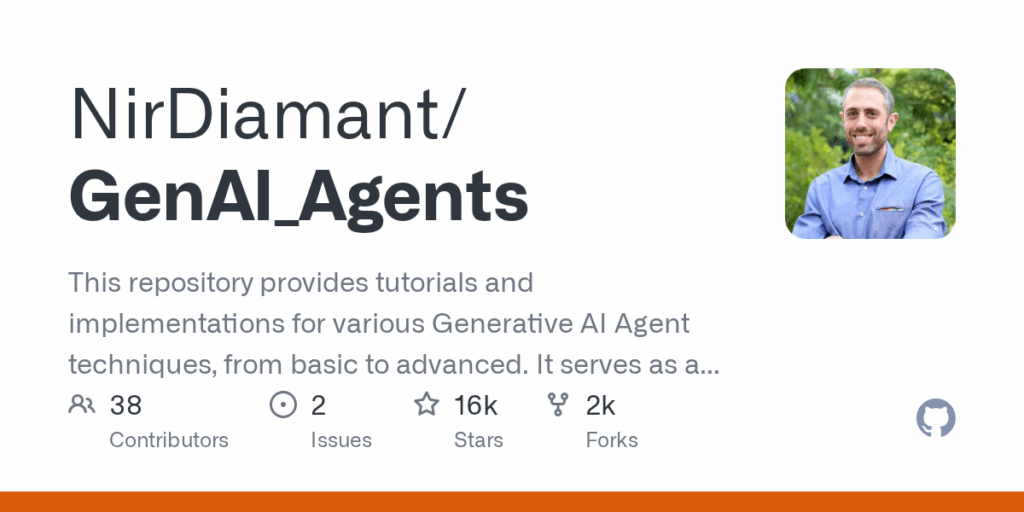GenAI_Agents
Basic Information
This repository is a comprehensive, example-driven collection of Generative AI agent tutorials and implementations intended to teach and demonstrate how to design, build, and experiment with AI agents. It gathers dozens of notebooks and ready-to-run examples that span beginner conversational bots, question answering, data analysis agents, and advanced multi-agent workflows such as ATLAS, research teams, and controllable RAG systems. The repo emphasizes practical patterns and orchestration techniques using frameworks like LangGraph and LangChain, and covers integration standards such as the Model Context Protocol (MCP). It is community-oriented with contribution guidelines and companion learning resources, and it organizes agents by category so readers can explore topics like memory-enhanced conversation, RAG pipelines, testing and QA agents, creative content generation, and automation for business workflows.








